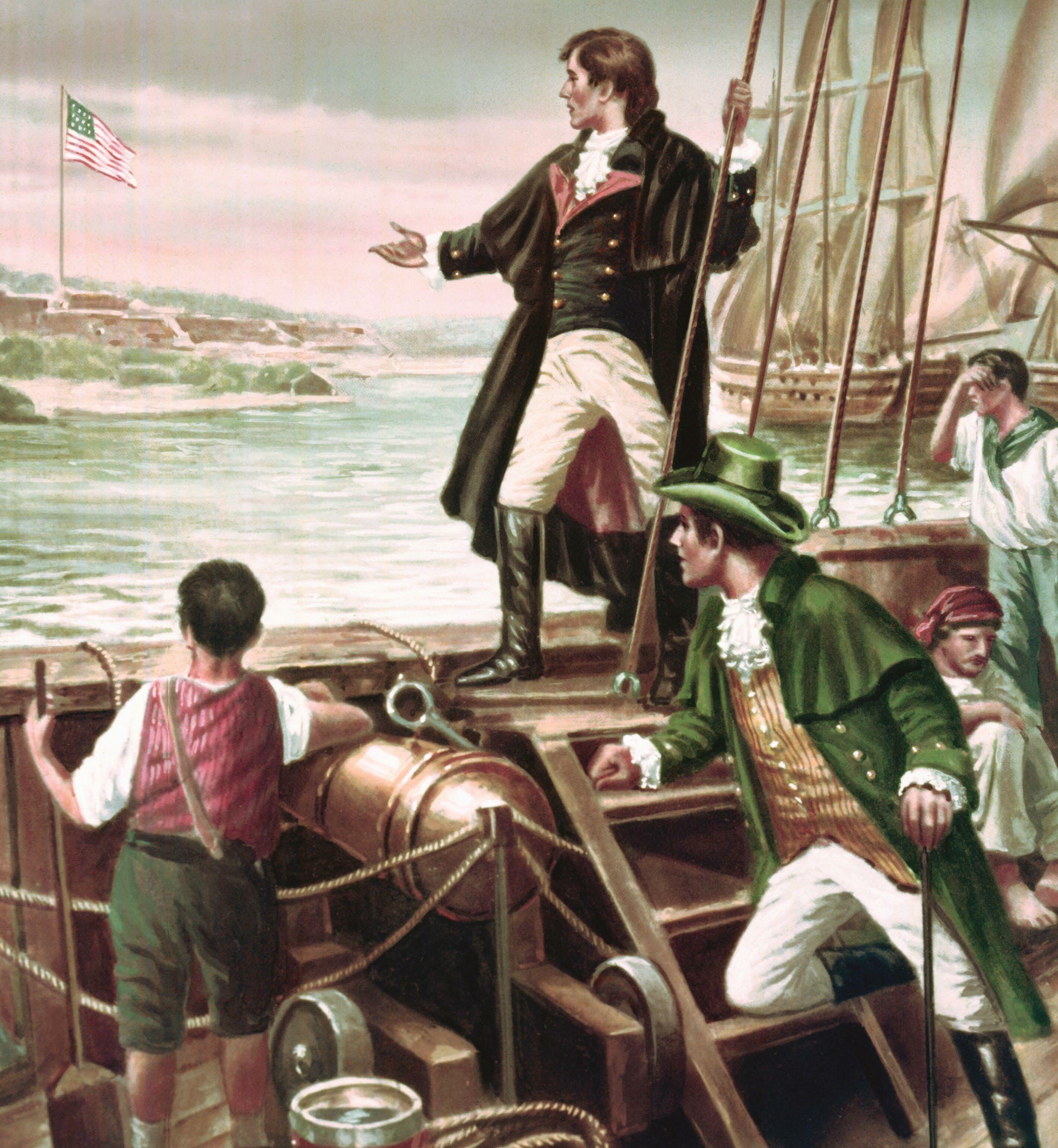Try GOLD - Free
BALTIMORE
History of War
|Issue 142
In the War of 1812, the Royal Navy launched an assault on the economic hub of Maryland, prompting an inspired American defence against the old enemy

Relations between Britain and its former colonies had been prickly ever since the United States won its independence, and there were many friction points between the two nations. Even so, a declaration of war in 1812 (the first time the USA had declared war on a foreign power) still seemed to catch both parties by surprise.
There was little appetite for war and neither side was in much of a position to fight one. Great Britain had all it could handle with the Napoleonic Wars, while the American armed forces were weak. The declaration itself appears to have been unexpected – President James Madison brought a list of grievances before Congress in June 1812 and they narrowly voted for war.
With neither side fully engaged, the conflict meandered on for more than two years, with much of the fighting focussed around the Canadian border. Things changed in 1814, with the defeat of Napoleon. Britain now had troops available for more serious operations, and the Chesapeake Bay was chosen as the best area to attack.
Operations in the bay were primarily intended to be a diversion to relieve pressure on British forces defending Canada. Risks were to be kept to a minimum because there was a major offensive planned in the Gulf of Mexico later in the year. A successful raid on Washington famously ended with the burning of the White House on 24 August 1814, and for a while it appeared as though operations in the Chesapeake were at an end.
Admiral Alexander Cochrane was wary of continuing operations in the region because the malarial season was about to begin, and he favoured keeping British troops healthy for the planned shift of focus to the Gulf. Other British officers felt that they had established momentum in the Chesapeake and should return there. Cochrane and Major General Robert Ross were eventually persuaded to mount another raid, and Baltimore was the chosen target.
This story is from the Issue 142 edition of History of War.
Subscribe to Magzter GOLD to access thousands of curated premium stories, and 10,000+ magazines and newspapers.
Already a subscriber? Sign In
MORE STORIES FROM History of War

History of War
FLYING INTO HISTORY ENOLA GAY
The first atomic bomb was dropped on Japan by an American B-29 bomber, preceding the country's capitulation in WWII. Here navigator Theodore Van Kirk recalls his experience of the day that changed history
7 mins
Issue 149

History of War
PUTIN'S SUBMARINE FLEET
From the Cold War to modern operations, the threat beneath the waves has been steadily building, and could be about to escalate
4 mins
Issue 149

History of War
ON SILVER WINGS
THIS MOVING BIOGRAPHY OF AN 'UNKNOWN' WWII RAF FIGHTER ACE CHARTS DESMOND IBBOTSON'S CAREER, THE STORY ENDING WITH A TWIST WHEN HIS REMAINS ARE DISCOVERED IN ITALY IN 2005
2 mins
Issue 149

History of War
CAMBODIA vs THAILAND ROOTS OF THE BORDER WAR
July 2025's clashes are the latest in a long frontier conflict that has gone unresolved, from the era of warrior kings to smart bombs
4 mins
Issue 149

History of War
TASK FORCE GREMLIN
At the end of WWII the Japanese Imperial Army Air Force was conscripted into the Royal Air Force in Southeast Asia
7 mins
Issue 149

History of War
RAF RETURNS TO NUCLEAR
Nearly 30 years after giving them up, the RAF is poised to reacquire air-dropped nuclear weapons
3 mins
Issue 149

History of War
NO MORE NAPOLEONS
A MAGISTERIAL SURVEY OF NAVAL POWER AND POLICY
2 mins
Issue 149

History of War
STALIN'S BLITZKRIEG
In the final month of WWII, the Red Army launched a devastating strike into Manchuria, opening a new front with Japan and threatening invasion of the Home Islands
10 mins
Issue 149

History of War
BALACLAVA POCKET WATCH
This William IV silver timepiece and its owner survived the Charge of the Light Brigade at the Battle of Balaclava
1 mins
Issue 149

History of War
THE END OF THE SPY?
Human intelligence is a dying art, but it is still crucial for security agencies worldwide
3 mins
Issue 149
Listen
Translate
Change font size
